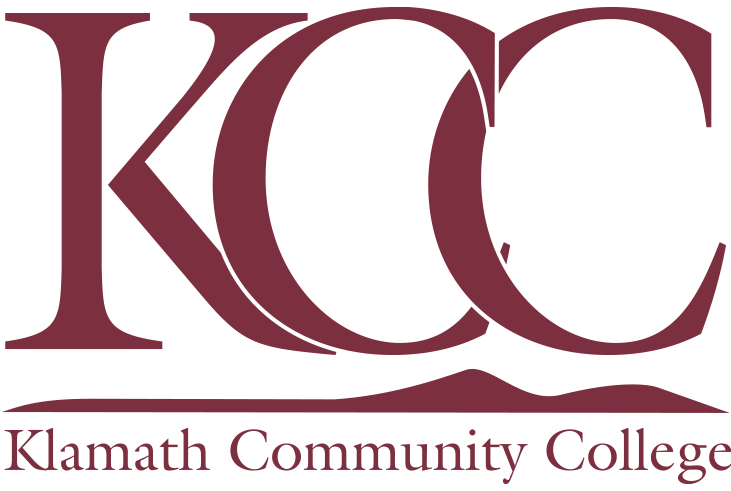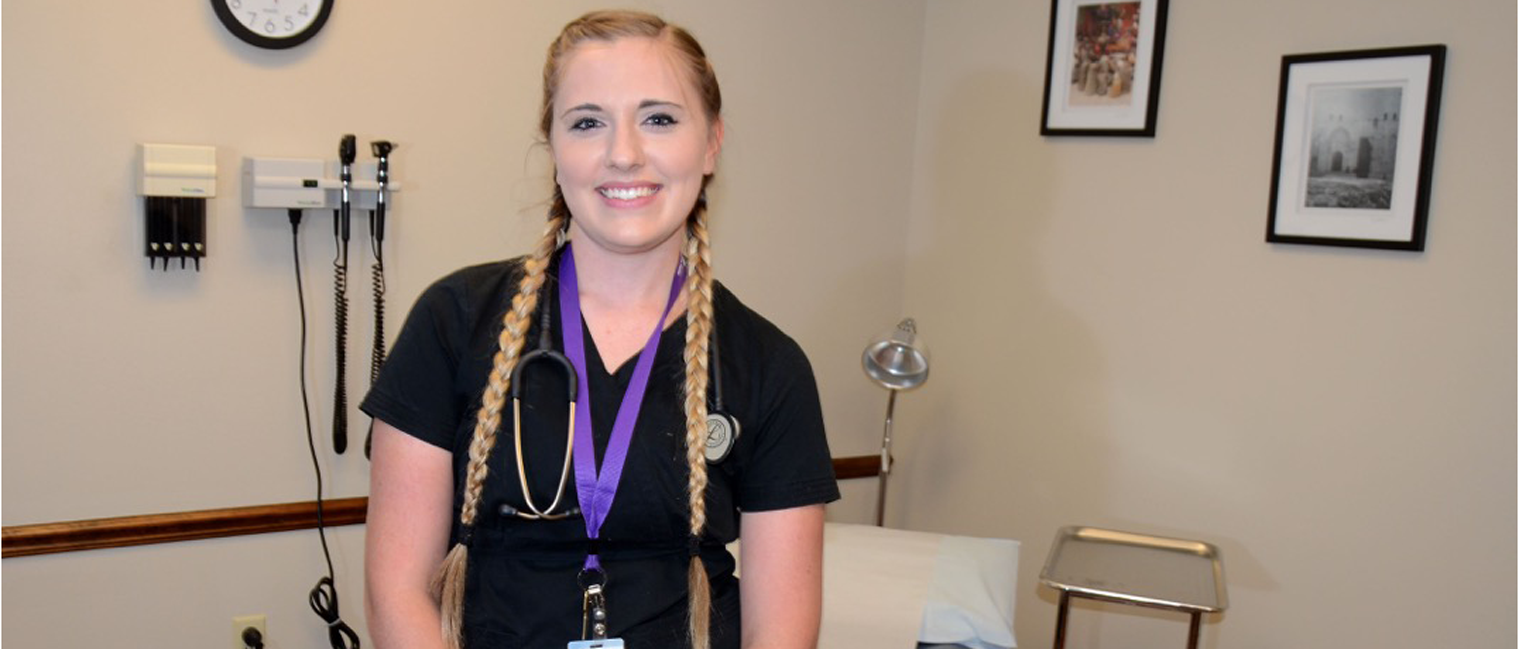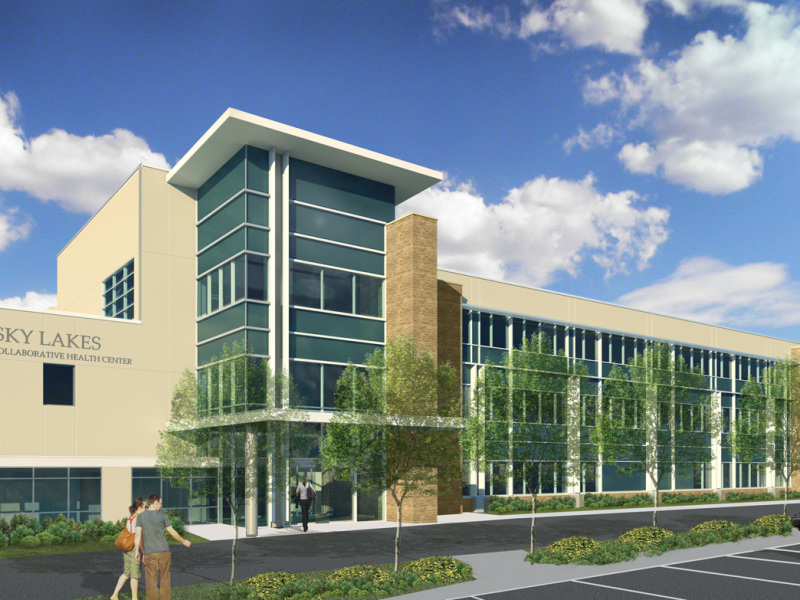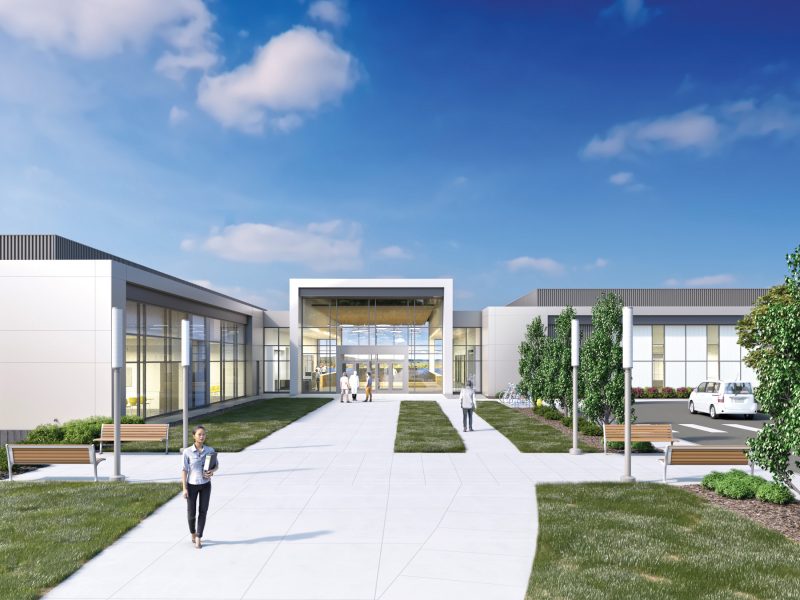KCC’s workforce programs give healthcare professionals an edge

For medical professionals preparing bloodwork, accurate results aren’t about the luck of the draw. It’s the order of draw that matters most.
“Knowing which tube to use and how to process them, and collecting blood following the order of draw, is the best way to make sure doctors can make an accurate diagnosis based on blood samples sent to the lab. If specimens are processed wrong, tests will need to be re-done and the patient would have to be poked again,” said Alexis Dow, a medical assistant at Klamath Open Door.
Dow passed the National Healthcareer Certification Exam in Certified Clinical Medical Assisting (CCMA) in 2017 after completing a 20-week CMA course at Klamath Community College. The course is part of a suite of short-term workforce programs KCC has developed in response to local and statewide medical industry needs. Other KCC programs include phlebotomy (drawing blood), pharmacy technician, dental radiology, and front office medical professional, which focuses on the administrative piece of the medical office and managing electronic health records.
According to Charles “Chip” Massie, KCC executive director of workforce training, the college’s healthcare workforce programs are designed to provide students with textbook knowledge and hands-on experience that gives them an edge when entering the workforce.
“KCC’s short-term workforce programs are a springboard for students to enter the healthcare industry and earn a living wage, carrying little or no debt,” Massie said.
Since KCC began offering healthcare workforce programs in 2017, more than 150 students have earned national certifications in their field of study, and many have entered the local workforce. In 2018, program completers had a combined 96 percent national certification pass rate in pharmacy technician, certified medical assistant, office medical professional, and phlebotomy.
Students enrolled in medical assisting learn an array of skills that allow them to work in a number of medical specialties, including orthopedic, sports medicine, and children’s medicine.
“Our goal is for local employers to have a labor pool of candidates who are trained well, understand their industry, and are ready for rewarding, professional careers,” Massie said.
Desiree Harris completed KCC’s phlebotomy and pharmacy tech programs to gain a deeper understanding of the technical aspects of her position as medical assistant at Basin Immediate Care.
“In phlebotomy, it’s about getting down the technique of feeling for a vein without looking at it. My instructor taught us to feel without looking, making sure not to get a muscle or tendon,” Harris said. “It was an amazing class and with a lot of hands-on and one-on-one instruction.”
Dow and Harris both love the fast-paced nature of their jobs, and working with patients is rewarding, as well. As medical assistants, they are exposed to a variety of medical industry specialties, from x-ray to certified nursing. Dow hopes to one day become a physician’s assistant, while Harris will draw on her experience at Basin Immediate Care to apply to the KCC nursing program next year.
Massie encourages anyone interested in healthcare to consider KCC’s programs.
“Whether someone is just starting out or looking to change careers, KCC has a program that will be a good fit,” Massie said, noting that coursework also counts toward clinical hours for nursing or radiology program applications.
For more information about KCC’s healthcare workforce programs, contact the college’s Workforce and Community Education office at 541-880-8243 or visit the KCC website at klamathcc.edu.
By Lacey Jarrell Director of Communications, KCC






